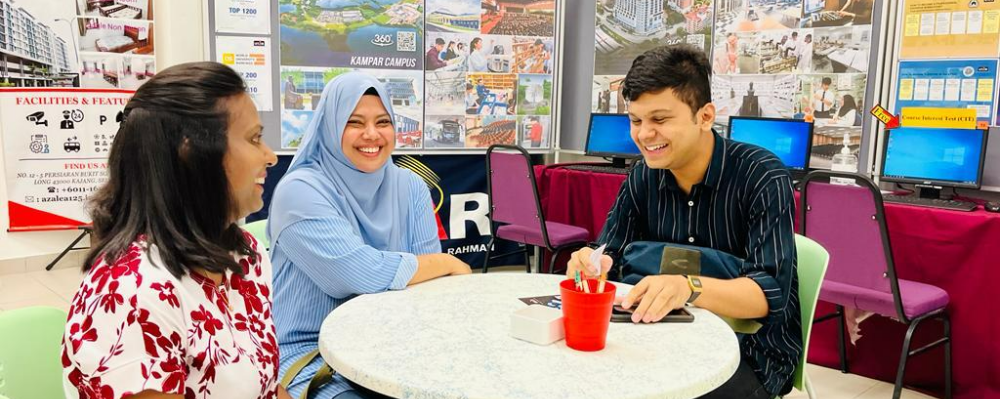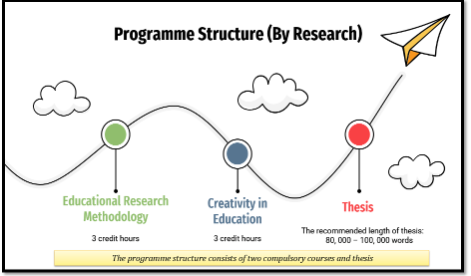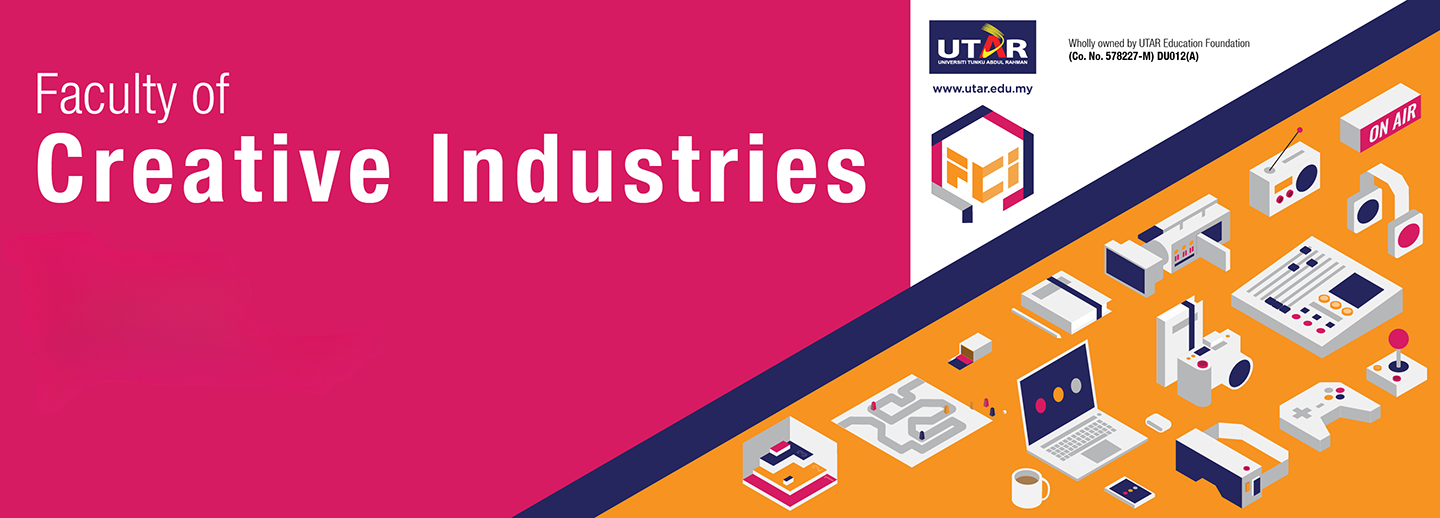
Doctor of Philosophy (EDUCATION)
PROGRAM DESCRIPTION
The Doctor of Philosophy (Education) programme was officially launched on Jan 2023 at Universiti Tunku Abdul Rahman, Sungai Long Campus. It is also known as Doktor Falsafah (Pendidikan) in our national language. The Doctor of Philosophy (Education) programme offered by the Faculty of Creative Industries aims to have its core focus naturally in education with a slant towards aspects of creativity and technology, a prevailing theme in 21st-century education. With the world progressing rapidly, the doctoral degree would therefore be apt in view of the growing need to have professionals who are well-versed in the current multi-faceted field of education that is as challenging as it is demanding.
It produces education practitioners who are creative with practical skills capable of integrating digital technologies in educational settings. These practitioners will be able to lead with autonomy and interact with internal and external stakeholders in constructing creative practices through research that advocate professional and ethical practices in education with a positive attitude, entrepreneurial mind-set, and sustainable practices in their profession.
Graduates would be able to find employment as academics, curriculum coordinators, educational leaders, executive directors of education, educational researchers, and thought leaders working in schools, university colleges, universities, government, and non-governmental organisations, and think tanks.
Programme Educational Objectives (PEO)
- To produce Education Practitioners who have state of the art knowledge with practical skills capable of using advanced numerical techniques and digital technologies in educational settings.
- To produce Education Practitioners who lead with autonomy, communicate and interact with internal and external stakeholders in constructing creative concepts/practices through research.
- To produce Education Practitioners who advocate professional and ethical practices in all education settings and defend the integrity of the profession at all times.
- To produce Education Practitioners with a positive attitude, entrepreneurial mind set and sustainable practices in progressing their career and the profession.
Programme Learning Outcomes (PLO)
Graduates will be able to:
- Critically synthesise and evaluate current knowledge and those emerging from research that are related to teaching and learning in meeting the challenges of a dynamic curriculum.
- Design and develop studies or research creatively to address educational issues demonstrating mastery of knowledge, incorporating state of the art analytical, numerical and digital techniques.
- Organise and design outcomes-based research employing advanced techniques, including digital technology to enhance the body of knowledge and practices in teaching and learning.
- Adapt suitable leadership styles and balance autonomy with responsibility in emerging and dynamic educational settings.
- Adapt to situations when managing tasks either individually or through multi-disciplinary teams with good communication and interpersonal skills in educational, organisational and research settings.
- Uphold and defend professionalism and ethics to fulfil professional teaching and research standards in ensuring the integrity of the profession at all times.
- Advocate positive attitudes and commitment to life-long learning with entrepreneurial mind-sets in response to the changing world of education and for professional advancement.
PROGRAMME STRUCTURE

SYNOPSIS OF THE COURSES
(i) Educational Research Methodology (DJGB10203)
The Educational Research Methodology syllabus aims to refine and consolidate knowledge of the concepts and principles of quantitative and qualitative research methods to enable students to conduct quality educational research. The course encompasses educational scientific inquiry, research design, quantitative and qualitative data gathering and analysis.
(ii) Creativity in Education (DJGB10303)
The Creativity in Education is designed to strengthen students’ foundation in the concept, theories, and applications of creativity, with a specific focus on creativity with digital technologies in education. Furthermore, this course is designed to encourage students to explore, investigate, and critically engage with future and current ways of thinking about creativity in education.
(iii) Thesis (DJGB10100)
The Thesis as the final and central requirement for awarding the PhD in Education is the completion of a substantial and original independent educational research project, which should feature elements of creativity and applications of technology. The successful completion of this requirement is demonstrated through the production of a thesis and describing novel findings.
NOTE: Courses offered are subject to change.
ASSESSMENT/EVALUATION METHODS
(i) Educational Research Methodology (DJGB10203)
- Assignment
- Educational Research Project
- Presentation
(ii) Creativity in Education (DJGB10303)
- Assignments
- Presentation
(iii) Thesis (DJGB10100)
- Proposal Defense
- Work Completion Seminar
- Viva
- Thesis
- Publications
BLENDED LEARNING
The unique characteristic of this programme lies in its division of the 12 teaching weeks into equal halves – six weeks of physical classes, where students attend in-person, and six weeks of online classes, where they engage virtually. The academic journey begins with the first two weeks and concludes with the final four weeks conducted face-to-face, providing students with direct interaction with instructors and peers. In contrast, weeks 3 through 8 are designated for online teaching and learning, allowing for flexibility and adaptability in the digital realm. This balanced blend of physical and online instruction not only ensures a well-rounded educational experience but also accommodates diverse learning preferences and circumstances.
Doctor of Philosophy (Education)
Click the link for more details:
https://ipsr.utar.edu.my/PhDED.php

